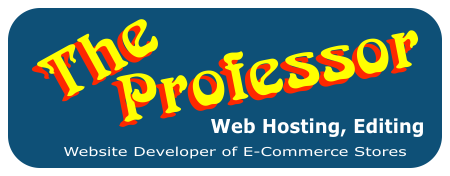
What is On-Page SEO?
On-page SEO refers to the practice of optimizing web page content and HTML source code. Unlike off-page SEO, which involves external factors like backlinks and social signals, on-page SEO focuses on elements within your control. These elements include content quality, keyword optimization, meta tags, and user experience factors such as page load speed and mobile-friendliness.
Key Components of On-Page SEO
Title Tags The title tag is one of the most important on-page SEO factors. It tells search engines and users what the page is about. A well-crafted title tag should include the primary keyword and be compelling enough to encourage clicks.
Meta Descriptions Meta descriptions are brief summaries of the content that appear under the title in search engine results. Although not a direct ranking factor, a compelling meta description can improve click-through rates, indirectly boosting SEO performance.
Header Tags (H1, H2, H3, etc.) Header tags structure the content, making it easier for search engines to understand the hierarchy and relevance of the information. The H1 tag is the most important and should include the primary keyword, while H2 and H3 tags can be used for subheadings and additional keywords.
Keyword Optimization Integrating relevant keywords naturally within the content is vital for on-page SEO. However, keyword stuffing should be avoided as it can lead to penalties. Instead, focus on providing valuable information and incorporating keywords seamlessly.
Content Quality High-quality, informative, and engaging content is the cornerstone of on-page SEO. Search engines prioritize content that satisfies user intent, so aim to provide comprehensive and well-researched information that addresses your audience’s needs.
Internal Linking Internal links help establish a clear site architecture and spread link equity across your site. They also help users navigate your site, keeping them engaged longer and reducing bounce rates.
URL Structure Clean, descriptive URLs that include keywords can enhance your on-page SEO. Avoid using long, complex URLs with unnecessary parameters. Instead, keep them concise and relevant to the page content.
Image Optimization Optimizing images by using descriptive file names, alt tags, and compressing files for faster load times can improve your on-page SEO. Search engines can’t read images, but they can read the alt text, making it crucial for accessibility and SEO.
Mobile Friendliness With the increasing use of mobile devices, having a mobile-friendly website is essential. Responsive design ensures your site looks good and functions well on all devices, which is a significant ranking factor for search engines.
Page Load Speed Fast-loading pages provide a better user experience and are favored by search engines. Tools like Google PageSpeed Insights can help identify and rectify issues that may be slowing down your site.
Importance of On-Page SEO
Improved Search Engine Rankings On-page SEO helps search engines understand your content better and index it accordingly. By optimizing various on-page elements, you can improve your chances of ranking higher in search engine results pages (SERPs).
Enhanced User Experience A well-optimized page provides a better user experience. Clear navigation, fast load times, and relevant content keep users engaged and reduce bounce rates. Search engines take user experience into account when ranking pages, so this is a critical aspect of SEO.
Increased Organic Traffic Higher rankings in SERPs lead to increased visibility and more organic traffic. On-page SEO ensures that your content is easily discoverable by users searching for relevant keywords.
Better Conversion Rates Optimized pages not only attract more visitors but also encourage them to take desired actions. Whether it’s making a purchase, signing up for a newsletter, or filling out a contact form, effective on-page SEO can significantly improve conversion rates.
Competitive Advantage In today’s digital landscape, staying ahead of the competition is crucial. Implementing on-page SEO strategies can give you an edge over competitors who may not be as focused on optimizing their content.
Conclusion
On-page SEO is a fundamental aspect of a successful digital marketing strategy. By understanding and implementing the basics, you can enhance your website's visibility, improve user experience, and drive more organic traffic. Remember, SEO is an ongoing process that requires regular monitoring and updating to adapt to search engine algorithm changes and evolving user behavior. Start optimizing your web pages today and watch your online presence grow!

Leave a Comment